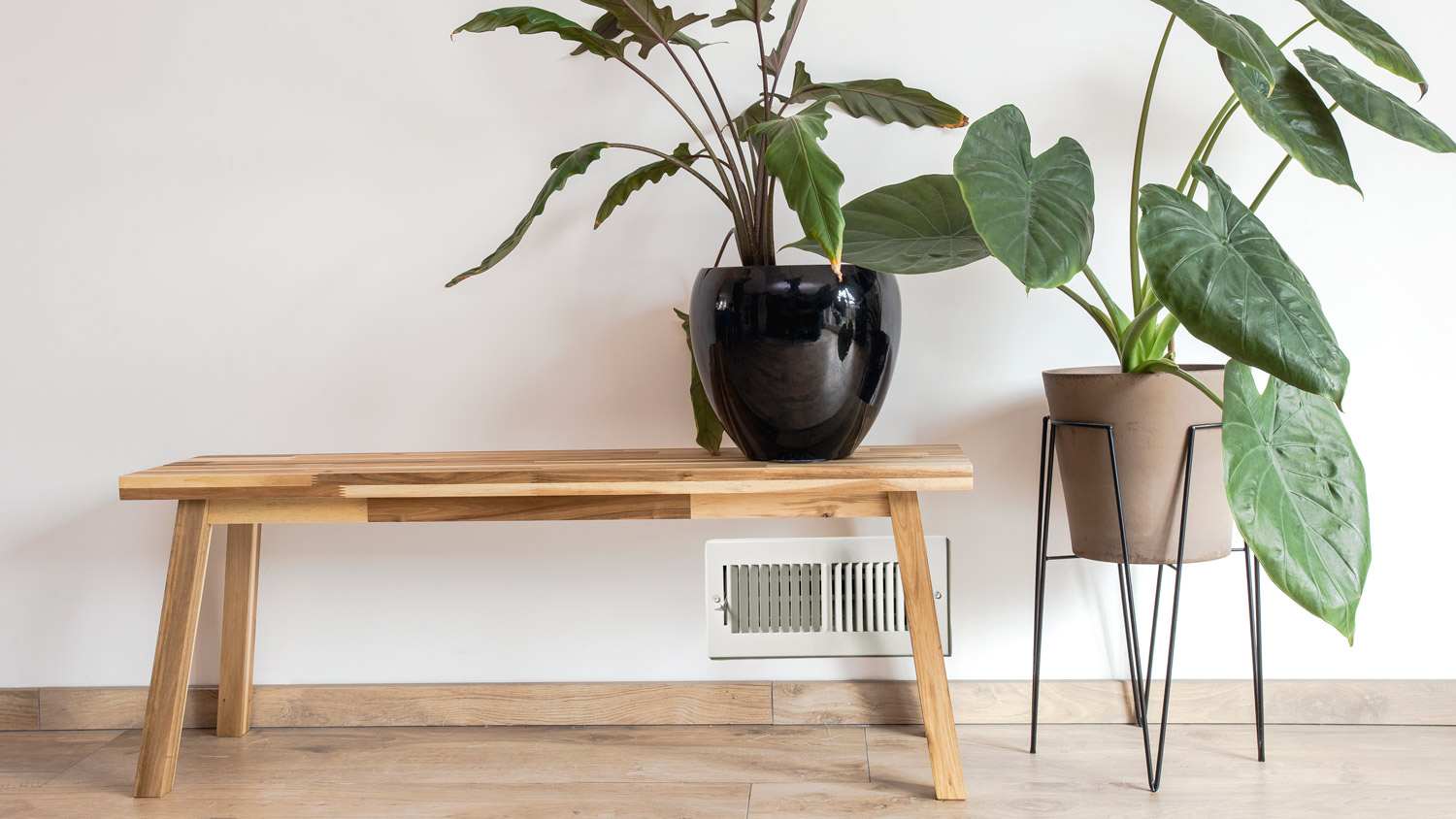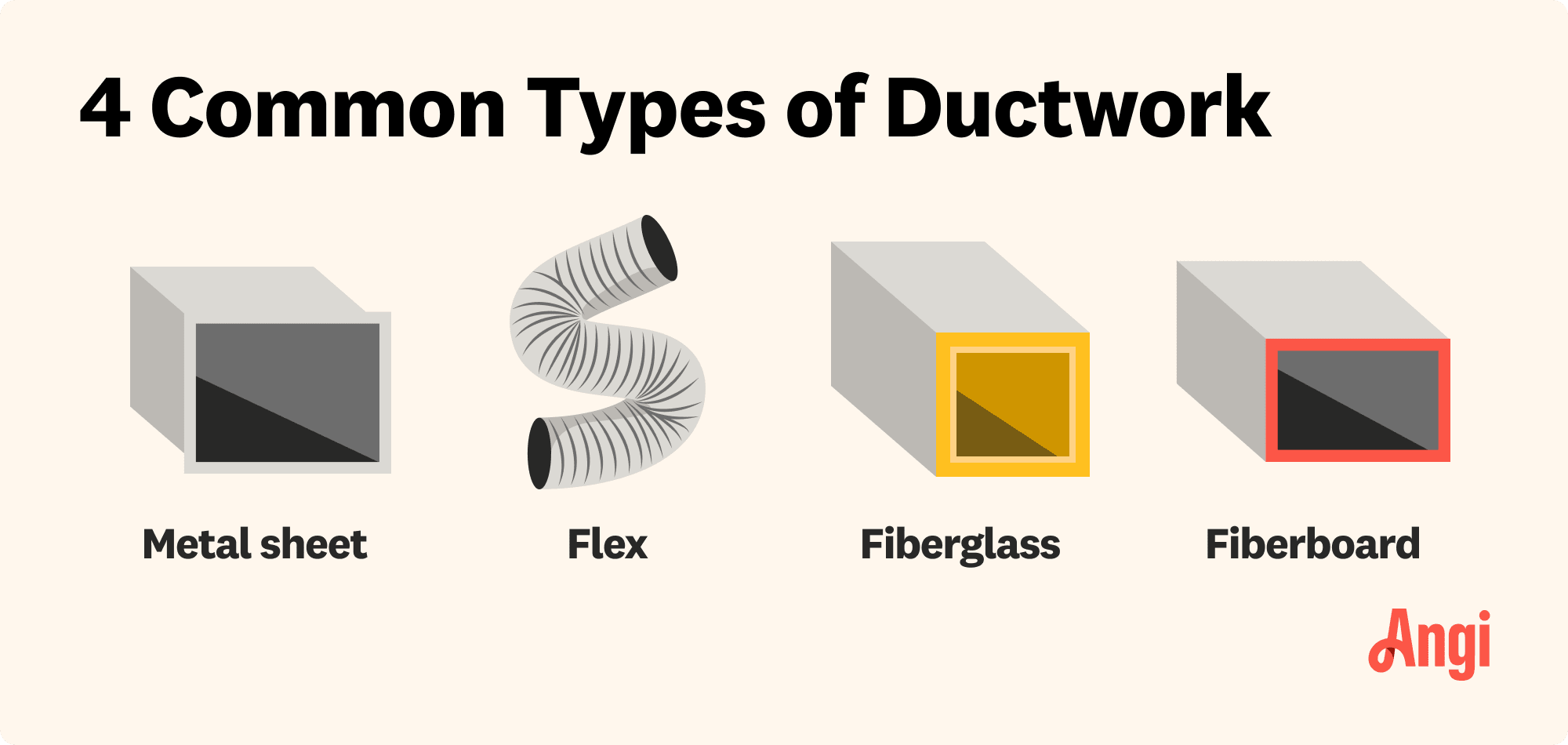
What you’ll pay in Columbus, OH, for furnace repairs depends on many factors. Here’s a breakdown of what can go wrong and the cost to fix those issues.
Air duct replacement in Portland, OR, costs $322 to $1,240, with an average of $775. You’ll pay more for high-end materials or difficult access points. Reach out to a local HVAC pro for an accurate estimate.


The cost to replace air ducts in Portland, Oregon, may be slightly more than average because homes are larger.
Homes with greater square footage require more materials, increasing air duct replacement costs.
Sheet metal is the most common type of air duct material for homes in Portland.
Exposed ductwork costs the least to replace, while crawl space ductwork costs the most.
Air duct replacement costs in Portland, OR, range from $322 to $1,240 and have an average cost of $775. Several factors influence how much homeowners can expect to see when upgrading their air ducts, including the home size, location, and material. Permit fees and varied local rates from professional installers also affect the final price tag.
Portland, OR, air duct replacement costs vary by the size of the home, air duct location, and material, making it important to know how these factors affect the total cost of your project. Let’s break them down to help you budget for replacing your air ducts.
The size of your home directly affects air duct replacement costs. Larger homes require more duct materials and labor to replace the entire air duct system. On average, the cost ranges from $2,000 to $5,000 for a small- to medium-sized home. However, duct replacement can run as low as $1,400 for smaller homes and as high as $9,000 for larger homes. Here’s how the size of your home affects duct replacement costs:
| House Size in Square Feet | Average Cost |
|---|---|
| 500 | $700–$1,100 |
| 1,000 | $1,400–$2,300 |
| 1,500 | $2,100–$3,400 |
| 2,000 | $2,800–$4,500 |
| 2,500 | $3,500–$5,600 |
| 3,000 | $4,200–$6,800 |
| 3,500 | $4,900–$7,900 |
Data from Realtor.com suggests that the median household size nationwide for homes on sale is 1,875 square feet, while the median household size in Portland is just over 2,000 square feet. Since homes on the market run around 125 square feet larger in Portland, you’ll see higher prices for duct replacement costs as a whole to accommodate more materials.
If only specific sections of your ductwork need replacement, such as in a renovation project, costs will depend on the location of the damaged or worn ductwork. Replacing ducts in hard-to-reach or concealed areas—like attics, basements, ceilings, walls, or crawl spaces—can increase labor costs. Here’s how the location of the ducts could affect their cost:
| Location | Average Cost |
|---|---|
| Attic | $2,200–$5,600 |
| Basement | $1,800–$3,100 |
| Crawl space | $3,000–$7,300 |
| Ceiling | $1,000–$4,000 |
| Exposed | $700–$3,000 |
| Wall | $1,000–$4,000 |
Oregon has strong energy efficiency initiatives. Many newer homes have air duct systems inside insulated thermal envelopes. But older homes may not have the same efficiency levels or insulation, requiring homeowners to invest more in insulation materials for more exposed areas to achieve the same level of energy efficiency. The state does not require older homes to make any major shifts toward installing new air ducts within insulated thermal envelopes.

The material you choose for your replacement ducts affects both their cost and longevity. The most commonly used duct material in Portland, OR, is rigid sheet metal (aluminum or galvanized steel).
Sheet metal ducts are durable but pricey. Portland residents live in a moist climate, however, and benefit from sheet metal as the top material of choice thanks to its water-resistant qualities. Flexible ducts, on the other hand, are more affordable but may need to be repaired or replaced sooner. Here’s a breakdown of air duct replacement costs based on duct material:
| Duct Material | Average Cost per Linear Foot | Pros | Cons |
|---|---|---|---|
| Flexible (non-insulated) | $1–$3 | Low cost, versatile | Short lifespan, fragile, less efficient |
| Flexible (insulated) | $2–$4 | Budget-friendly, better efficiency than non-insulated flex | Not durable, less efficient |
| Fiberboard | $4–$6 | Quiet, comes insulated | Poor airflow efficiency, shorter lifespan |
| Fiberglass | $4–$6 | Quieter than metal, easier to install | Fibers may deteriorate into airways, mold risk |
| Sheet metal | $7–$13 | Durable, long lifespan, very efficient | Higher cost |
Hiring HVAC pros in Portland, OR, costs anywhere from $50 to $110 per hour, with most professionals charging 60% for labor and 40% for materials. For example, materials that cost around $500 have a labor cost of $750, putting your total estimate at $1,250.
According to the City of Portland’s Bureau of Development Services, the cost of a building permit to replace ductwork is $73. The City of Portland requires residents to work with a licensed HVAC professional for air duct replacements, so be sure to check licensing when deciding on who to hire for ductwork projects. Your air duct replacement pro will also handle acquiring the permit to complete the work.
Quality ductwork will increase the efficiency of your HVAC, sometimes by 20% to 30%. This is because there is reduced air leakage due to better insulation and more optimized airflow. This means your HVAC doesn't have to work as hard to keep the desired temperature, so it uses less energy.
Air duct replacement can slightly increase your home's value, especially if your existing air ducts are due for replacement or use less efficient materials. New air ducts improve air quality, promote better circulation, can be quieter than previous ducts, and offer better efficiency depending on the types of materials used and installation quality.
However, air duct replacement alone doesn't come with a major return on investment (ROI). One of the best ways to increase your home value while replacing your air duct system is to install a new HVAC system at the same time. HVAC systems can increase home values by 5% to 7% on average.
Home is the most important place on earth, which is why Angi has helped more than 150 million homeowners transform their houses into homes they adore. To help homeowners with their next project, Angi provides readers with the most accurate cost data and upholds strict editorial standards. We survey real Angi customers about their project costs to develop the pricing data you see, so you can make the best decisions for you and your home. We pair this data with research from reputable sources, including the U.S. Bureau of Labor Statistics, academic journals, market studies, and interviews with industry experts—all to ensure our prices reflect real-world projects.
Want to help us improve our cost data? Send us a recent project quote to [email protected]. Quotes and personal information will not be shared publicly.
From average costs to expert advice, get all the answers you need to get your job done.

What you’ll pay in Columbus, OH, for furnace repairs depends on many factors. Here’s a breakdown of what can go wrong and the cost to fix those issues.

If your furnace is malfunctioning, it could be a faulty control board. Find out what a furnace control board replacement costs for parts, labor, and more.

Heating and cooling system on the fritz? Discover the factors that go into HVAC repair costs and how you can save money on this crucial home update.

Wondering how to bleed a baseboard heater without a bleed valve? Here’s how to remove trapped air the old-fashioned way, with a boiler drain and water replacement.

Balancing your home’s radiators is a simple way to increase the efficiency and effectiveness of your HVAC system. Check out these 8 tips before you start.

There are few things more important to homeowners than keeping their AC systems running. Use this guide on AC leak repair to keep your home cool and comfy.